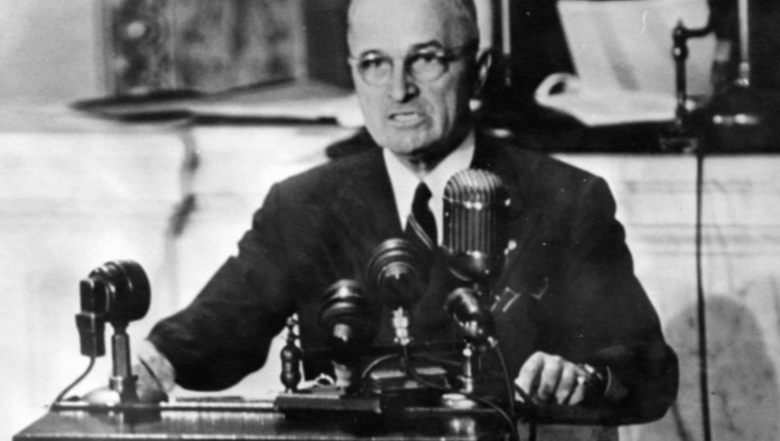Drawing:5zomfevjavk= Truman Doctrine

The Drawing:5zomfevjavk= Truman Doctrine, marked a decisive shift in America’s approach to global conflicts, particularly during the Cold War. Its commitment to countering communism not only redefined international relations but also established a framework for U.S. interventions worldwide. As we consider its historical significance, it is essential to examine how its principles have evolved and influenced contemporary geopolitical dynamics. What implications does this doctrine hold for today’s struggles between democracy and authoritarianism, and how might its legacy inform current policy decisions?
Historical Background of the Doctrine
The Truman Doctrine, announced in 1947, emerged as a pivotal framework in the context of post-World War II geopolitical tensions, particularly between the United States and the Soviet Union.
This doctrine symbolized a definitive stance against the spread of communism, reflecting broader Cold War geopolitical strategies that sought to contain Soviet influence and promote democratic ideals, thereby reinforcing the United States’ commitment to global freedom.
Key Components and Principles
At its core, the Truman Doctrine embodies several key components and principles that fundamentally shaped U.S. foreign policy during the early Cold War era.
Central to this doctrine is the containment strategy, aimed at preventing the spread of communism, which reflects a broader political ideology valuing democracy and freedom.
This approach underscored America’s commitment to supporting nations resisting authoritarian regimes, thereby influencing global geopolitics.
Impact on U.S. Foreign Policy
Influenced by the principles of containment, the Truman Doctrine significantly altered U.S. foreign policy by establishing a proactive stance against the expansion of communism.
This containment strategy intensified geopolitical tensions, particularly during the Cold War, as the U.S. engaged in various military and diplomatic efforts worldwide.
Consequently, it shaped alliances and interventions, reflecting America’s commitment to countering perceived threats to freedom and democracy.
Read Also Drawing:5o28f1_Ion8= Orpheus
Legacy and Modern Relevance
Evolving from its original context, the Truman Doctrine continues to resonate within modern geopolitical frameworks, illustrating the enduring nature of its principles.
Its emphasis on national security and containment policy informs contemporary strategies, reinforcing international alliances in defense of democratic ideals.
As geopolitical dynamics shift, the doctrine’s legacy shapes responses to authoritarianism, echoing the Cold War’s lessons in today’s global arena.
Conclusion
The Drawing:5zomfevjavk= Truman Doctrine, initiating a commitment to contain communism that persisted throughout the Cold War. By 1950, U.S. military and economic aid to countries resisting communism exceeded $400 million, illustrating the doctrine’s significant financial implications. The ongoing influence of this doctrine is evident in contemporary geopolitical strategies, as nations continue to navigate challenges posed by authoritarian regimes, reinforcing the enduring relevance of the principles established in 1947.






